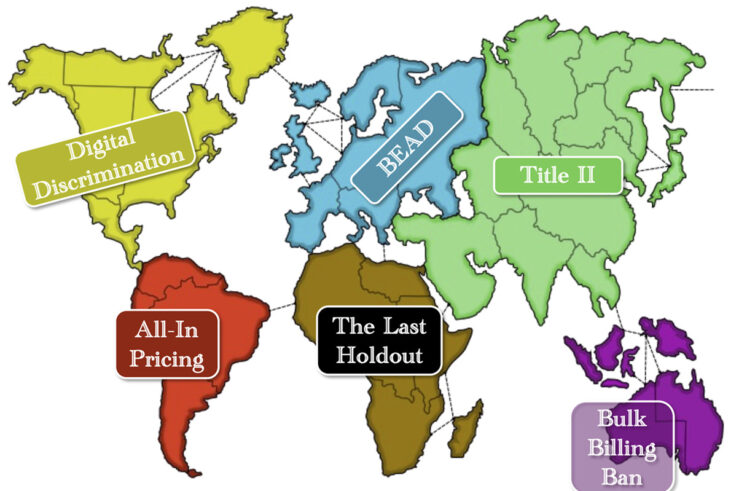Microsoft, AT&T, Standard Oil, and …. the Globetrotters? The Globetrotters just might join this list of well known antitrust defendants. The Harlem Ambassadors, a rival exhibition basketball squad, have filed a complaint with the FTC concerning the Globetrotters’ use of “exclusivity windows” in leases with local arenas, which effectively prevent competitors from playing in the same arena around the same time as the Globetrotters. CNN Money has the story here.
Professor McCann (Mississippi College of Law) at Sports Law Blog is quoted in the article as saying that “The FTC may look at this and say the exclusivity agreements are used by circuses and other forms of entertainment, so what’s the problem.” McCann also warns that the use of these clauses may be attracting antitrust exposure unnecessarily for the Globetrotters:
“There’s a real risk when you create your own David vs. Goliath story when you’re the Goliath. I think the clauses are unnecessary and they would continue to do well without them . . .. It could be the best thing for them to have a little competition.”
At Sports Law Blog, McCann elaborates a bit, suggesting that Ambassadors’ President Dale Moss’ public statement that he is not interested in treble damages, but only a “fair shot” to compete against the Globetrotters, lends “credibility” to the complaint.
I am a big fan of the Sports Law Blog, but there is an economic fallacy underlying this logic that I cannot resist pointing out. The claim is that competition is not present where we observe these exclusivity clauses, or at least that there should be more competition, and that therefore antitrust law might improve consumer welfare eliminating the clauses. This is wrong. There is competition for the contract.
Competition for contract is an important element of the competitive process in many markets. This competition occurs prior to the familiar source of ex post retail price competition that consumers observe. For example, product manufacturers compete for access to shelf space with slotting allowances, Coke and Pepsi battle for exclusive access to restaurant chains, record labels pay for radio airplay, etc. Harold Demsetz referred to this type of activity as “competition for the field” rather than “between the field.” Antitrust law generally, and correctly, recognizes that competition for contract is an important element of the competitive process. This form of competition can provide substantial benefits to consumers and should not be chilled by overaggressive antitrust policy.
The appropriate antitrust question is to identify the competition the Globetrotters face in obtaining these exclusive windows? Presumably, at least all of the other exhibition basketball firms can compete for these exclusive windows, including the would-be plaintiffs here. Well, then why do the Globetrotters always receive the window (presumably, this is the reason for the complaint)? The arena stands to make more money with the Globetrotters than rivals because they offer a superior product or better contract terms.
Of course, it is possible that the competitive process for contract can injure consumers under some conditions. But even ignoring the obvious pro-competitive justification for the exclusive window, a necessary condition of such an anticompetitive theory is that the Globetrotters have monopoly power. In the competitive market for consumers’ entertainment dollars, I am highly skeptical that the Globetrotters even come close to satisfying this condition.
The importance of competition for contract is often overlooked in antitrust analysis. Private plaintiffs, regulators, and sometimes judges tend to focus on the dimensions of competition that are more easily observable, i.e. retail price competition, while ignoring dimensions that are less obvious. Without a proper understanding of competition for contract, regulators might mistakenly infer from the presence of exclusive dealing or a shelf space containing Coke but not Pepsi, that there is a competitive problem that needs solving. A sensible approach to competition for contract in antitrust is essential to avoiding intervention that would commit the first order error of protecting competitors rather than competition. I discuss some of these issues in my forthcoming paper, Antitrust Law and Competition for Distribution.




